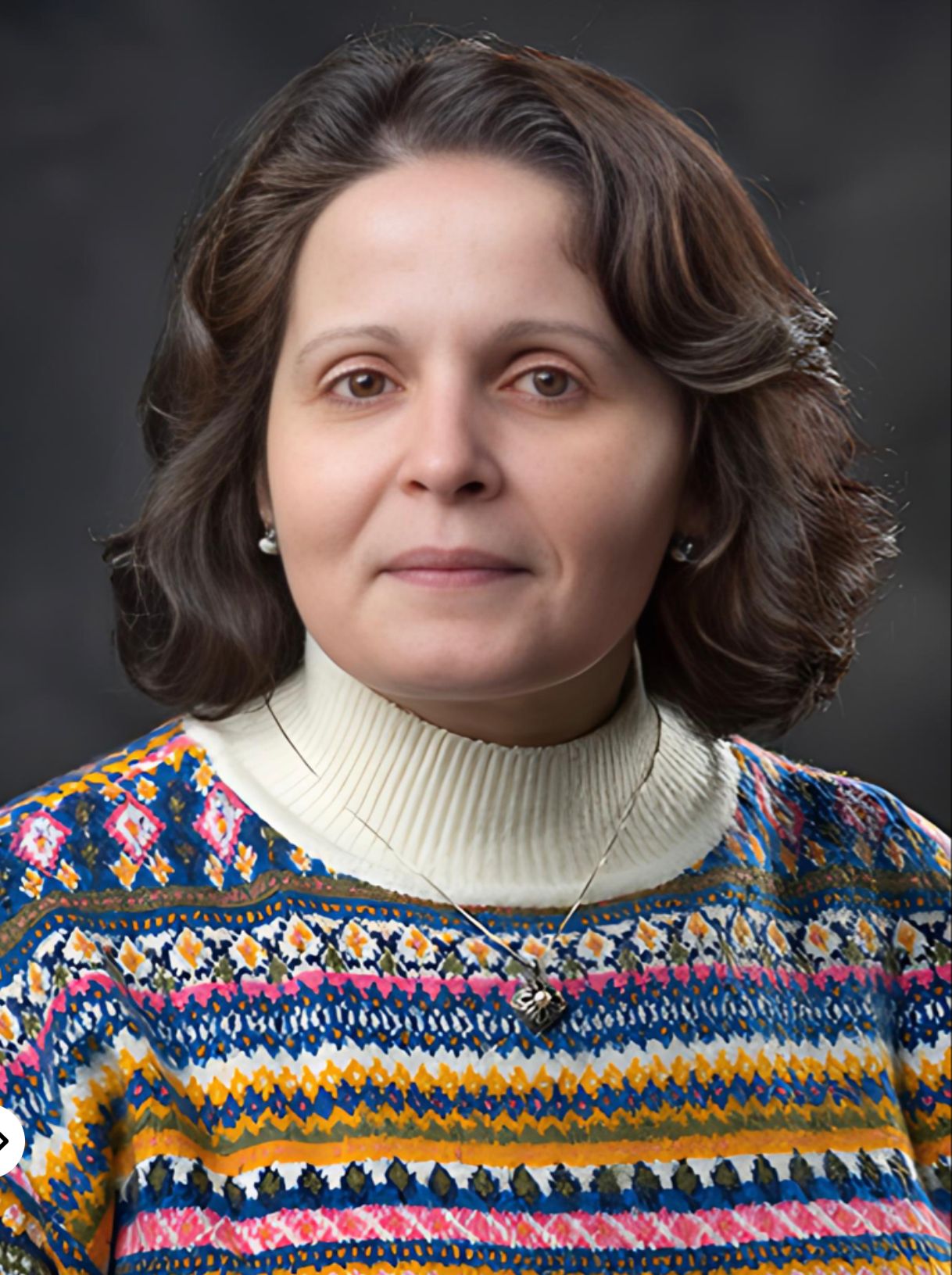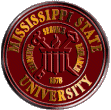- Research Interests: Experimental Hadronic Physics
-
I am interested in studying the subatomic structure of strongly interacting particles, hadrons, such as protons and neutrons, the constituents of every atomic nucleus. This research is carried out at Jefferson Laboratory (JLab), Newport News, VA, as well as Fermi National Laboratory (Fermilab), Batavia, IL. My group is leading the preparation of a few upcoming 12 GeV CLAS (CLAS12, housed in Hall-B at JLab) experiments to unravel the Quantum Chromo-Dynamics (QCD) confinement feature of hadrons in terms of their elementary constituents, quarks and gluons, via the study of the hadronization and/or fragmentation processes that probe the dynamics of quark (or Color) Propagation and hadron formation in the cold nuclear matter (CP experiment), and the Color Transparency phenomenon; that is, the formation and evolution of small size configurations to regular hadrons (CT experiment), which collected data in the fall of 2023, as well as deciphering the effect of in-medium modifications of the transverse momentum distributions (TMDs) in nuclei (Nuclear TMDs in CLAS12 experiment). The group is also leading the artificial intelligence (AI) track reconstruction and particle identification for the comprehensive Low Energy Radial Tracker (ALERT) studies on light nuclei (4He and 2H nuclei) to investigate the partonic structure with Generalized Parton Distributions via (in-)coherent production and exploit the spectator tagging technique to explore several processes such as deeply virtual Compton scattering (DVCS), DVMP (deeply virtual meson production), semi-inclusive deep inelastic scattering (SIDIS) production, and the so-called European Muon Collaboration (EMC) (depletion seen for x ~ 0.5) effects.
Furthermore, the group has been involved in several JLab 6 GeV data analyses that aimed to study the DVCS off 4He in addition to the meson spectroscopy in the 4He coherent production (EG6 run-group experiment "internal wiki-page"), extract a high precision nucleon spin structure at very low momentum transfer to test various spin sum rules (EG4 run-group experiment "internal wiki-page"), and probe the time evolution of elementary configurations of the hadron wave function via the hadronization study of Λ hyperons, the first-ever SIDIS analysis with CLAS6 EG2 datasets; the EG2 run-group married two experiments, CT and CP. The latter provides a promising method to investigate nucleon and nuclear structure, construct a theory of super-dense nuclear matter, and disentangle the physics of heavy ion collisions that take place at high temperatures with the creation of a Quark-Gluon Plasma. The published results of SIDIS Λ electroproduction off nuclei in the forward and backward fragmentation regions will be further enriched once the 11 GeV CLAS12 CP experiment accumulates data in the spring of 2024. Besides the physics interest, my group successfully led the development as well as optimization of the CLAS12 drift chambers calibration and monitoring suite.
On the other hand, my Fermilab research focuses on the polarized, E1039, and unpolarized, E906, Drell-Yan (DY) experiments, dubbed as SpinQuest and SeaQuest, respectively. The former intends to extract spin-dependent quark and antiquark distributions of the proton and neutron and study the unique correlation of the quark-antiquark spin and angular momenta. In this project, my group is leading the effort of studying the poorly known gluon Sivers/Twist-3 transverse momentum distributions using J/Ψ production, developing an advanced graphics processing unit (GPU)-based multi-threaded framework that will allow an efficient parallelization of the online data analysis, maintaining the performance of two-station tracking chambers in the inherited SeaQuest spectrometer, and providing support to upgrading, operating, and maintaining the cryogenic and polarized targets during the commissioning and data-taking of the SpinQuest experiment. While the latter aims to extract a more precise antiquark asymmetry ratio, study the quark propagation and energy loss effects in the cold nuclear matter, target nucleus, before the hard process, dilepton production, takes place, in addition to the measurement of DY cross sections from several nuclear targets to compare the sea quark distribution in nuclei to that in deuteron. This comparison will allow an examination of the previously published DY results, which showed no significant modification of the nuclear cross section for longitudinal momentum fraction, x> 0.1, unlike the "antishadowing" enhancement observed in the deep inelastic scattering and EMC experiments. The SeaQuest data will be able to address the question of whether the antishadowing region and the EMC effects exist in the Drell-Yan process.
- Professional Background
-
| Associate Professor | | | | Mississippi State University | | 2020 - Present |
| Assistant Professor | | | | Mississippi State University | | 2019 - 2020 |
| Assistant Professor Bridge Position | | | | Mississippi State University/Jefferson Laboratory | | 2014 - 2019 |
| Post-doctoral Research Associate | | | | Old Dominion University/Jefferson Laboratory | | 2013 - 2014 |
| Post-doctoral Research Associate | | | | Rutgers, The New Jersey State University | | 2009 - 2013 |
| Post-doctoral Research Scholar | | | | Rutgers, The New Jersey State University | | 2008 - 2009 |
Education
| Ph.D. in Experimental Hadronic Phys. | | | Mohammed V University, Rabat, Morocco jointly with Argonne National Laboratory, Lemont, IL | | | | 2008 |
| M.S. in High Energy Phys. | | | Mohammed V University, Rabat, Morocco | | | | 2003 |
| B.S. in Nuclear Phys. | | | Abdelmalek Essaadi University, Tetouan, Morocco | | | | 1999 |
- Curriculum Vitae
-
Printable Version
-
Recent Publications
-
Printable Version
- Research Grants and Sponsors
-
-
U.S. Department Of Energy , "Precision Measurements at Medium Energy", DE-FG02-07ER41528, 2025 - 2028 ($1,061,940).
-
Jefferson Science Associates (JSA)/Jefferson Lab , "Sabbatical Leave Research Support", 2023 ($7,500).
-
U.S. Department Of Energy , “Support of Polarized Solid-state Targets for the Fermilab E1039/SpinQuest Experiment (Supplemental Award)”, DE-FG02-07ER41528, 2023 – 2025 ($288,000).
-
U.S. Department Of Energy , “Precision Measurements at Medium Energy”, DE-FG02-07ER41528, 2022 – 2025 ($864,482).
-
U.S. Department Of Energy , "Precision Measurements at Medium Energy", DE-FG02-07ER41528, 2019 - 2022 ($714,800).
-
Jefferson Lab/Hall B , "1/2 Postdoctoral Research Associate Position for Dr. Taya Chetry", February - August 2019 ($17,092).
-
U.S. Department Of Energy , "Study of Gluon Tranverse Momentum Distributions with J/Ψ Production in the E-1039 Polarized Drell-Yan Experiment", DE-FOA-0001820, 2018-2019 ($125,000).
-
Jefferson Lab/Hall B , "1/2 Postdoctoral Research Associate Position for Dr. Krishna Adhikari", January - May 2017 ($13,119).
-
U.S. Department Of Energy , "Nuclear Dependence of Delta and Lambda Production", DE-FG02-07ER41528, 2016-2019 ($314,000).
-
MSU departmental/VPR and JSA/Jefferson Lab , "Bridged-Appointment Faculty Position", 2014 - 2019 ($242,724).
- Teaching:
-
-
PH-8111: Seminars and Colloquia (2020 Fall Semester - present)
Hybrid, F 3:00 - 4:00 PM
Course description
-
PH-8213: Mechanics (2022 Spring Semester)
Hilbun 152, T Th 11:10 AM - 12:25 PM (2021)
Course description
-
PH-4223/6223: Intermediate Mechanics II (Spring Semesters of 2025-3 & 2021 - 2018/6)
Hilbun 152, T Th 12:30 - 1:45 PM (2025-3)
Course description
-
PH-8613: Nuclear Physics I (Fall Semesters of 2024/0, 2018 & 2014)
Hilbun 152, T Th 12:30 - 1:45 PM (2024)
Course description
-
PH-2233: Physics III (Fall Semesters of 2019 & 2016)
Hilbun 350, T Th 11:00 AM - 12:15 PM
Course description
-
PH-4213/6213: Intermediate Mechanics I (Fall Semesters of 2025, 2017 & 2015)
Hilbun 152, T Th 9:30 - 10:45 AM
Course description
- Graduates Students
Current:
-
Former:
-
-
Nuwan Chaminda Gunawardhana Waduge (Thesis M.S. 2022)
Project: "Calibration and commissioning of the Fermilab SpinQuest/E1039 experiment
-
Shirsendu Nanda (M.S. 2019)
Project: "Calibration of CLAS12 datasets and CLAS6/CLAS12 data analyses"
-
Pubuduni Ekanayaka Mudiyanselage Egoda Walawwe (M.S. 2018)
Project: "Study of the CLAS6 spectrometer operation and data structure"
- Useful Links for Graduate School
-
- Post-doctoral Associate
Current:
-
-
Vaniya Ansari (Ph.D. 2023, Aligarh Muslim University, Uttar Pradesh, India): 2024 - Present
Project: Optmizing and maintainign the polarized-target and cryogenic systems for the Fermilab Polarized DY, E1039/SpinQuest, experiment as well as the study of the study of the gluon Sivers functions via J/Ψ production.
-
Mathieu Ouillon (Ph.D. 2024, Laboratoire de Physique des 2 infinis Irène Joliot-Curie – IJCLab): 2024 - Present
Project: Developping and optimizing the AI-assited track reconstruction and particle identification for ALERT experiments, and analyzing the datasets of CLAS12 RG-D, CT & Nuclear TMDs, experiments
-
Utsav Shrestha (Ph.D. 2021, Ohio University): 2024 - Present
Project: Optimization of GPU-based multi-threaded framework for online reconstruction and monitoring of the Fermilab Polarized DY, E1039/SpinQuest, experiment as well as the study of the sea quark transversity distribution.
Former:
-
-
Mikhail Yurov (Ph.D. 2018, University of Virginia): 2022 - 2024
Project: Developping and optimizing the AI-assited track reconstruction and particle identification for ALERT experiments, and preparing, commissioning as well as analyzing the datasets of CLAS12 RG-D, CT & Nuclear TMDs, experiments
-
Eric Fuchey (Ph.D. 2010, Université Blaise Pascal (Clermont-II) - Clermont-Ferrand, France): 2022 - 2023
Project: Optimization of GPU-based multi-threaded framework for online reconstruction and monitoring of the Fermilab Polarized DY, E1039/SpinQuest, experiment as well as the study of the gluon Sivers functions via J/&Psi production.
-
Catherine Ayuso (Ph.D. 2020, U. of Michigan): 2020 - 2022
Project: Developement of GPU-based multi-threaded framework for online reconstruction and monitoring of the Fermilab Polarized DY, E1039/SpinQuest, experiment as well as the study of the Transverse Single Spin Assymmetries via J/&Psi production.
-
Taya Chetry (Ph.D 2019, Ohio University): 2019 - 2022
Project: Maintaining and improving the CLAS12 DC calibration suite along with the first-ever fragmentation study of Λ hyperons using the CLAS6 EG2 datasets
-
Hao Jiang (Ph.D. 2017, University of South Carolina): 2018 - 2019
Project: Developement of GPU-based multi-threaded framework for online reconstruction and monitoring of the Fermilab Polarized DY, E1039/SpinQuest, experiment
-
Md. Latiful Kabir (Ph.D. 2017, University of Kentucky): 2017 - 2019
Project: Developement of the CLAS12 DC calibration and monitoring suite, and the fragmentation study of Λ hyperons using the CLAS6 EG2 "Quark Propagation" datasets
-
Krishna Adhikari (Ph.D. 2013, Old Dominion University): 2014 - 2017
Project: CLAS12 & BoNuS12 ("Barely off-shell Nucleon Structure") tracking and DC calibration software developement, and data analyses of the EG4 rungroup experiment
- Honors, Achievement, and Press Highlights
-
SouthEastern Section of the American Physical Society (SESAPS) Executive Committee (EC) Chairline, Chair-Elect, January - December 2025
-
SouthEastern Section of the American Physical Society SESAPS EC Chairline, Vice Chair, January - December 2024
-
DOE Office of Science News Bulletin, "Digging Through Data to Investigate Strange Matter", Nov. 2023
-
Miss. State U. News Headlines, "MSU physicist first to observe formation of rare ‘strange matter’", June 2023
-
Association for Women In Science (AWIS) Member Spotlight, highlighted as well in LinkedIn posts, Nov. 2022
-
Jefferson Lab CLAS Collaboration, re-elected as the "Chair of the Nuclear Physics Working Group", Sept. 2022 - 2025
-
Miss. State U. Office of Research & Economic Development, "College of Arts & Sciences Faculty Research Award", 2021
-
Miss. State U. News Headlines, "MSU researchers’ findings featured in Nature article on proton ‘broken symmetry’" (featured on the DoE Office of Science News Bulletin), Feb. (May) 2021
-
Jefferson Lab CLAS Collaboration, "Chair of the Nuclear Physics Working Group", Sept. 2019 - 2022
-
SESAPS EC , Member-at-Large, Jan. 2019 - Dec. 2022
-
Jefferson Lab Users Organization (JLUO), "Outreach Director at the JLUO Board of Directors", June 2017 - 2019
-
Miss. State U. News Headlines, "MSU physicist’s subatomic structure study published in Nature", Oct. 2018
-
Jefferson Lab/Hall-B, "Full membership of the CLAS Collaboration", December 2016
-
Non-Scientific Organization, "Top Female Professional", as recognition of career accomplishments in physics research and education, October 2015
|

Office : 010-D Hilbun Hall
Phone : 662-325-0627
Fax : 662-325-8898
Email : le334@msstate.edu
Address: P. O. BOX 5167,
Mississippi State,
MS, 39762
|
![[MSU Physics Logo]](http://le334.physics.msstate.edu/files/Satellite.jpg)

![[MSU Physics Logo]](http://le334.physics.msstate.edu/files/Satellite.jpg)
